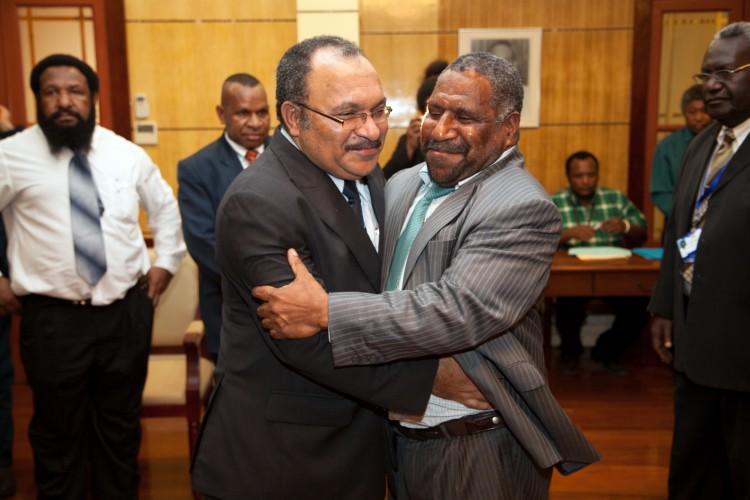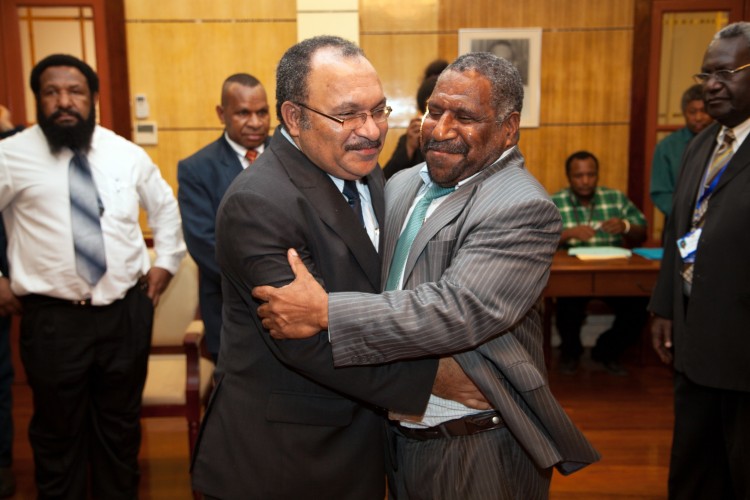Australian and New Zealand troops have been sent to Papua New Guinea as the country prepares for volatile general elections.
Both countries have stated they are merely assisting the elections, but reports from Post Moresby suggest they are preparing in the event of a breakdown in social order.
“Australian troops are holed up in hotels around Port Moresby Airport,” Denis Reinhardt a former adviser to the Papua New Guinea (PNG) government, said in an email. “In any emergency, the two sites, which would be secured in POM (Port Moresby) would be the Australian High Commission and Jacksons Airport, for evacuations.”
Australia’s Foreign Minister Bob Carr and Minister of Defense Stephen Smith issued a statement, May 30, saying Australian and New Zealand defense forces would provide personnel and aviation support to transport election materials over the June to July election process.
“Australia and New Zealand are providing practical support in response to a request by PNG authorities to assist them with the conduct of a safe, free and fair election,” they said in a statement.
But Reinhardt says troops are already there and while he is receiving reports from Moresby that it is presently calm, he warns that it may not remain so.
“There will be sustained and scattered violent events in the lead up to elections,” he wrote.
Further warnings were made in a report from Sydney think tank, the Lowy Institute.
They credit high “financial bounty” from PNG’s rich resource sector, the “enhanced value of political office,” and a “proliferation of weapons,” as well as increased pressure on security forces as factors that have increased the likelihood of violence.
Volatile Year
There is no doubt the stakes are high in the tiny nation of 6.3 million people just north of Australia, where many live a subsistent village life. The $16 billion ExxonMobil LNG gas project alone, is just one of the sources of revenue on offer.
A member of the British Commonwealth, PNG has always exhibited a unique brand of the British parliamentary system but over the last year, it has been particularly volatile. The incumbent prime minister has been accused of being a de facto leader, dismissed by the courts and re-elected by Parliament three times, while the nation had at one stage two prime ministers and then none.
The debacle began last year when then Prime Minister Michael Somare, 77, was forced to take an extended leave from Parliament due to illness. Rumors circulating that Somare was too ill to return, were seemingly confirmed in a statement by his son Arthur.
Peter O‘Neill a former treasurer and opposition member made his move. He was voted prime minister last August, but Somare returned fit and feisty to reclaim his position. While O’Neill has the numbers in Parliament, the Supreme Court has twice ruled that Somare is the legitimate leader.
Since then, it has been a free for all between the two, with a range of sectors in the community affected including the military, the governor general and the judiciary.
The impasse may well be solved by a general election, but until then, the country is under a caretaker government. That did not stop incumbent Peter O'Neill from calling a special session of Parliament Wednesday where he unanimously won his third re-election. Somare and his supporters boycotted the vote.
Professor Ron May, Pacific specialist at the Australian National University described O'Neill’s antics as “a bit of a circus.”
“The writs for the election have been issued, the Parliament has been prorogued, so a meeting of the Parliament has no standing,” he told Australia’s national broadcaster the ABC.
May says over 4,000 candidates have already enrolled for the coming elections and around 46 political parties.
While Somare and O'Neill are likely to win in their electorates, May said it will not be easy to predict an outcome.
The Epoch Times publishes in 35 countries and in 19 languages. Subscribe to our e-newsletter.






